|
Books Should Be Free Loyal Books Free Public Domain Audiobooks & eBook Downloads |
|
|
Books Should Be Free Loyal Books Free Public Domain Audiobooks & eBook Downloads |
|
Books on Politics |
|---|
|
Book type:
Sort by:
View by:
|
By: Jane Addams | |
|---|---|
 The Spirit of Youth and the City Streets
The Spirit of Youth and the City Streets
Much of the material in the following pages has appeared in current publications. It is here presented in book form in the hope that it may prove of value to those groups of people who in many cities are making a gallant effort to minimize the dangers which surround young people and to provide them with opportunities for recreation. (Introduction by Jane Addams) Jane Addams (1860 – 1935) was the first American woman to be awarded the Nobel Peace Prize. In a long, complex career, she was a pioneer settlement worker and founder of Hull House in Chicago, a public philosopher, a sociologist, an author and a spokesperson for women's suffrage and world peace. | |
By: Henry Adams (1838-1918) | |
|---|---|
 Democracy - An American Novel
Democracy - An American Novel
Not until after his death in 1918 was it revealed that Henry Adams was the anonymous author of Democracy, which had been published to great acclaim in 1880. Though the book avoids dates and the characters are fictitious, the setting is no doubt that of Washington in the 1870s, the age of Presidents Grant and Hayes. The young widow, Madeleine Lee, wealthy and independent, is the protagonist, who leaves her New York for Washington to turn her intelligence to politics and to see what makes her country tick... | |
By: John Maynard Keynes (1883-1946) | |
|---|---|
 Economic Consequences of the Peace
Economic Consequences of the Peace
The Economic Consequences of the Peace (1919) was a best seller throughout the world, published by John Maynard Keynes. Keynes attended the Versailles Conference as a delegate of the British Treasury and argued for a much more generous peace with Germany. The book was critical in establishing a general worldwide opinion that the Versailles Treaty was a brutal and unfair peace towards Germany. It helped to consolidate American public opinion against the treaty and involvement in the League of Nations... | |
By: Friedrich Engels (1820-1895) | |
|---|---|
 Condition of the Working-Class in England in 1844
Condition of the Working-Class in England in 1844
This is Engels' first book (since considered a classic account of England's working class in the industrial age), which argues that workers paid a heavy price for the industrial revolution that swept the country. Engels wrote the piece while staying in Manchester from 1842 to 1844, based on th bohis observations and several contemporary reports conducted over the period. | |
By: Elbert Hubbard | |
|---|---|
 Little Journeys to the Homes of the Great
Little Journeys to the Homes of the Great
LITTLE JOURNEYS TO THE HOMES OF AMERICAN STATESMENBy ELBERT HUBBARDBERT HUBBARD A little more patience, a little more charity for all, a little more devotion, a little more love; with less bowing down to the past, and a silent ignoring of pretended authority; a brave looking forward to the future with more faith in our fellows, and the race will be ripe for a great burst of light and life. --Elbert Hubbard It was not built with the idea of ever becoming a place in history: simply a boys' cabin in the woods... | |
By: Francis Fisher Browne (1843-1913) | |
|---|---|
 Every-day Life of Abraham Lincoln
Every-day Life of Abraham Lincoln
This detailed biography covers the places in Lincoln's life: Indiana, Illinois, Washington. It also traces his various roles as storekeeper, serviceman, state legislator, lawyer, politician, Republican Party leader, and of course President. Along the way we learn about his days of hardship as a beginning lawyer, his love for Anne Rutledge, such myths as "Honest Abe," and his deep concerns over the issue of slavery. The author uses Lincoln's correspondence with others to show his personality traits and opinions about topics of his world. | |
By: Katherine Thurston (1875-1911) | |
|---|---|
 The Masquerader
The Masquerader
The Masquerader is one of two Katherine Cecil Thurston’s books that appeared on the Publisher’s Weekly best-sellers list in 1905. The Masquerader is part mystery, part romance and part political thriller – all tied up in one neat package. Nature has a way of sometimes making two people nearly indistinguishable in appearance. Such is the premise for this book. John Chilcote, a British politician, and John Loder, a man down on his luck meet by accident one night during one of London’s worst fogs... | |
By: National Gambling Impact Study Commission | |
|---|---|
 National Gambling Impact Study Commission Final Report
National Gambling Impact Study Commission Final Report
The National Gambling Impact Study Commission was given the task of conducting a comprehensive legal and factual study on the social and economic implications of gambling in the United States. This report presents the principal findings of that work and recommendations for action. | |
By: Las Cortes y el Pueblo Español | |
|---|---|
 Constitución Española de 1978
Constitución Española de 1978
Constitución vigente en España actualmente, fruto de la Transición a la democracia tras la muerte de Francisco Franco. (Introducción por AGV) | |
By: Charles F. Dole | |
|---|---|
 The Coming People
The Coming People
Dole briefly sketches the history of life, and shows how it has a definite direction - toward the survival of the kind and gentle people. It's a challenging, and quite persuasive argument, and also a much needed one in light of the dog-eat-dog theories out there. Dole shows that in our evolving society, our traditional understanding of "survival of the fittest" needs to be updated. A book that was way ahead of its time, yet so suited to it. Some may argue that - since he was writing The Coming People before the first two world wars - that he was obviously wrong... | |
By: United States Federal Bureau of Investigation | |
|---|---|
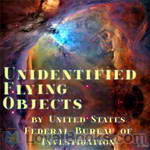 Unidentified Flying Objects
Unidentified Flying Objects
Through the U.S. Freedom of Information Act (FOIA) this series of communications has been de-classified and made public. Most names have been omitted, however much information of the sightings of UFOs in 1947 can be gleaned from these communications which were primarily between the FBI and other U.S. Government and military organizations. | |
By: Jacob A. Riis (1849-1914) | |
|---|---|
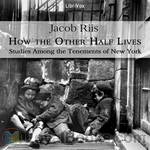 How the Other Half Lives: Studies Among the Tenements of New York
How the Other Half Lives: Studies Among the Tenements of New York
How the Other Half Lives: Studies Among the Tenements of New York (1890) was a pioneering work of photojournalism by Jacob Riis, documenting the squalid living conditions in New York City slums in the 1880s. It served as a basis for future muckraking journalism by exposing the slums to New York City’s upper and middle class. The title of the book is a reference to a phrase of François Rabelais, who wrote in Pantagruel: "one half of the world does not know how the other half lives". | |
By: John Addington Symonds (1840-1893) | |
|---|---|
 A Problem in Modern Ethics
A Problem in Modern Ethics
“Society lies under the spell of ancient terrorism and coagulated errors. Science is either wilfully hypocritical or radically misinformed.” John Addington Symonds struck many an heroic note in this courageous (albeit anonymously circulated) essay. He is a worthy Virgil guiding the reader through the Inferno of suffering which emerging medico-legal definitions of the sexually deviant were prepared to inflict on his century and on the one which followed. Symonds pleads for sane human values in... | |
By: Johanna Brandt (1876-1964) | |
|---|---|
 The Petticoat Commando
The Petticoat Commando
In introducing the English version of this book I venture to bespeak a welcome for it, not only for the light which it throws on some little-known incidents of the South African war, but also because of the keen personal interest of the events recorded. It is more than a history. It is a dramatic picture of the hopes and fears, the devotion and bitterness with which some patriotic women in Pretoria watched and, as far as they could, took part in the war which was slowly drawing to its conclusion on the veld outside... | |
By: Clarence Darrow (1857-1938) | |
|---|---|
 Industrial Conspiracies
Industrial Conspiracies
| |
By: John R. Lynch (1847-1939) | |
|---|---|
 The Facts of Reconstruction
The Facts of Reconstruction
After the American Civil War, John R. Lynch, who had been a slave in Mississippi, began his political career in 1869 by first becoming Justice of the Peace, and then Mississippi State Representative. He was only 26 when he was elected to the US Congress in 1873. There, he continued to be an activist, introducing many bills and arguing on their behalf. Perhaps his greatest effort was in the long debate supporting the Civil Rights Act of 1875 to ban discrimination in public accommodations.In 1884 Lynch was the first African American nominated after a moving speech by Theodore Roosevelt to the position of Temporary Chairman of the Republican National Convention in Chicago, Illinois... | |
By: Walter Lippmann (1889-1974) | |
|---|---|
 Public Opinion
Public Opinion
Public Opinion (1922), by Walter Lippman, is a critical assessment of functional democratic government, especially the irrational, and often self-serving, social perceptions that influence individual behavior, and prevent optimal societal cohesion. (Introduction by author) | |
 Preface to Politics
Preface to Politics
This is the first book in the bibliography of Walter Lippmann, written three years after emerging from Harvard where he studied under the pragmatists Santayana and James. Although the work is a century old, the reader of today may still find in it, with its focus on practical human needs, a refreshing view towards the fundamental purpose (and persistent flaws) of politics, and indeed government itself, just as relevant and meaningful today as when it was written. | |
By: Pierre-Joseph Proudhon (1809-1865) | |
|---|---|
 What is Property? An Inquiry into the Principle of Right and of Government
What is Property? An Inquiry into the Principle of Right and of Government
What Is Property?: or, An Inquiry into the Principle of Right and of Government (French: Qu'est-ce que la propriété ? ou Recherche sur le principe du Droit et du Gouvernment) is an influential work of nonfiction on the concept of property and its relation to anarchist philosophy by the French anarchist and mutualist Pierre-Joseph Proudhon, first published in 1840. In the book, Proudhon most famously declared that “property is theft”. Proudhon believed that the common conception of property conflated two distinct components which, once identified, demonstrated the difference between property used to further tyranny and property used to protect liberty... | |
By: 'Abdu’l-Bahá ‘Abbás (1844-1921) | |
|---|---|
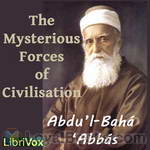 The Mysterious Forces of Civilization
The Mysterious Forces of Civilization
The Mysterious Forces of Civilization (Persian: Risálih-i-Madaníyyih) is a work written before 1875 by ‘Abbás Effendí, known as ‘Abdu’l-Bahá (the Servant of Bahá) (1844-1921). The Persian text was first lithographed in Bombay in 1882 and printed in Cairo in 1911. ‘Abdu’l-Bahá was the eldest son and appointed successor of Bahá’u’lláh, the Founder of the Bahá’í Faith. The original text of this work was written and published anonymously, and the first English translation (by Johanna Dawud) was published in London in 1910 and Chicago in 1918, under the title ‘Mysterious Forces of Civilization’ written by "an Eminent Bahai Philosopher... | |
By: Margaret Sanger (1879-1966) | |
|---|---|
 Woman and the New Race
Woman and the New Race
Margaret Sanger was an American sex educator and nurse who became one of the leading birth control activists of her time, having at one point, even served jail time for importing birth control pills, then illegal, into the United States. Woman and the New Race is her treatise on how the control of population size would not only free women from the bondage of forced motherhood, but would elevate all of society. The original fight for birth control was closely tied to the labor movement as well as the Eugenics movement, and her book provides fascinating insight to a mostly-forgotten turbulent battle recently fought in American history. | |
By: Francis Key Howard (1826-1872) | |
|---|---|
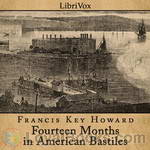 Fourteen Months in American Bastiles
Fourteen Months in American Bastiles
Francis Key Howard recounts in this book his life as a political prisoner of the United States. He points out that he was held captive at the same location where his grandfather was inspired to write the national anthem about the "land of the free," which makes a very stunning contrast. The sufferings that were imposed on him by the Union forces had the effect of solidifying his determination to resist unjust governmental dictates. (Introduction by Katie Riley) | |
By: Hippolyte Dreyfus-Barney (1873-1928) | |
|---|---|
 The Universal Religion: Bahaism - Its Rise and Social Import
The Universal Religion: Bahaism - Its Rise and Social Import
“Bahaism is not a new religion,” writes Hippolyte Dreyfus-Barney, “It is religion renewed… it does not pretend to represent the whole Truth; on the contrary, it recognises Truth in fundamental principles which are the basis of all former dispensations, and which for that very reason form the standpoint of concord too long lost sight of. And it requires people to renounce ancient superstitions, to abandon the dead letter in order to be penetrated by the living and vivifying spirit, then by... | |
By: Imbert de Saint-Amand (1834-1900) | |
|---|---|
 Marie Antoinette and the Downfall of Royalty
Marie Antoinette and the Downfall of Royalty
Paris in 1792 is no longer what it was in 1789. In 1789, the old French society was still brilliant. The past endured beside the present. Neither names nor escutcheons, neither liveries nor places at court, had been suppressed. The aristocracy and the Revolution lived face to face. In 1792, the scene has changed."France was now on the verge of the Reign of Terror (la Terreur), the violent years following the Revolution, and this book chronicles the terrible period of French history which culminated in the proclamation: "Royalty is abolished in France... | |
By: Jefferson Davis (1808-1889) | |
|---|---|
 Rise and Fall of the Confederate Government, Volume 1a
Rise and Fall of the Confederate Government, Volume 1a
The Rise and Fall of the Confederate Government (1881) is written by Jefferson Davis, former President of the Confederate States of America during the American Civil War. Davis wrote the book as a straightforward history of the Confederate States of America and as an apologia for the causes that he believed led to and justified the American Civil War. Davis spared little detail in describing every aspect of the Confederate constitution and government, in addition to which he retold in detail numerous military campaigns... | |
By: Maria W. Stewart (1803-1879) | |
|---|---|
 Meditations from the Pen
Meditations from the Pen
Maria W. Stewart was America's first black woman political writer. Between 1831 and 1833, she gave four speeches on the topics of slavery and women's rights. Meditations From The Pen of Mrs. Maria W. Stewart—published in 1879 shortly before her death—is a collection of those speeches as well as her memoir, some meditations and prayers. They are political, poetical and sermon all at the same time; but in the mileu in which she lectured, they were a critically important part of the abolitionist movement years before the contributions of others such as Frederick Douglass and Sojourner Truth... | |
By: Margaret Fuller (1810-1850) | |
|---|---|
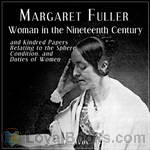 Woman in the Nineteenth Century and Kindred Papers Relating to the Sphere, Condition, and Duties of Women
Woman in the Nineteenth Century and Kindred Papers Relating to the Sphere, Condition, and Duties of Women
Margaret Fuller (1810-1850) was an American feminist, writer, and intellectual associated with the Transcendentalist movement. Her book Woman in the Nineteenth Century (1845) is considered the first major feminist work in the United States. Her life was short but full. She became the first editor of the transcendentalist journal The Dial in 1840, before joining the staff of the New York Tribune under Horace Greeley in 1844. By the time she was in her 30s, Fuller had earned a reputation as the best-read person in New England, male or female, and became the first woman allowed to use the library at Harvard College... | |
By: Edward M. House (1858-1938) | |
|---|---|
 Philip Dru: Administrator
Philip Dru: Administrator
Philip Dru: Administrator: a Story of Tomorrow, 1920-1935 is a futuristic political novel published anonymously in 1912 by Edward Mandell House, an American diplomat, politician and presidential foreign policy advisor. His book's hero leads the democratic western U.S. in a civil war against the plutocratic East, and becomes the dictator of America. Dru as dictator imposes a series of reforms that resemble the Bull Moose platform of 1912 and then vanishes. | |
By: John T. Morse (1840-1937) | |
|---|---|
 John Quincy Adams
John Quincy Adams
This biography contains three main sections. the first covers Adams's early years and his time as a diplomat--both in America and overseas. The second tells of his two careers as Secretary of State and President. The last involves his years in the House of Representatives. | |
By: Tommaso Campanella (1568-1639) | |
|---|---|
 City of the Sun
City of the Sun
A dialogue between a Grandmaster of the Knights Hospitallers and a Genoese Sea-captain, about the latter's voyage to a utopian city. | |
By: Justin McCarthy (1830-1912) | |
|---|---|
 History of the Four Georges and of William IV, Volume 3
History of the Four Georges and of William IV, Volume 3
In Volume III of this series on the Hanoverian Kings, Justin McCarthy is joined by his son, Justin Hartly McCarthy, a liberal Irish MP like his father. Together they bring to life, poor stubborn George III, the outrageous radical, John Wilkes, the rebellious American Colonies, great-hearted Charles James Fox, the Gordon Riots which set London ablaze, Edmund Burke, Britain's problematic Indian policy, and the brave, enigmatic Younger Pitt, who faced national fears of the spread of revolution across the Channel from France and then confronted the imminent threat of invasion by the armies of Napoleon. | |
By: Various | |
|---|---|
 Shield
Shield
This is not merely a book about the Russian Jews. It is a marvellous revelation of the Russian soul. It shows not only that the overwhelming majority of the Russian intellectuals, including nearly all of her brilliant literary geniuses, are opposed to the persecution of the Jews or any other race, but that they have a capacity for sympathy and understanding of humanity unequalled in any other land. I do not know of any book where the genius and heart of Russia is better displayed. Not only her leading litterateurs but also her leading statesmen and economists are represented—and all of them speak as with a single voice. | |